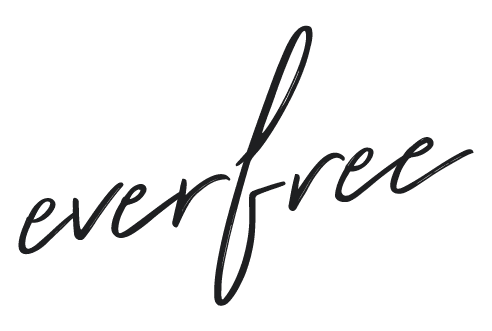Unchecked power fuels exploitation—here’s how business leaders can change that
When Sean “Diddy” Combs goes on trial on sex trafficking charges, he’ll be the latest in a long line of celebrities accused of exploitation and abuse. From Hollywood power players to CEOs, countless wealthy and powerful figures have been accused of using their status to trap victims and escape accountability, in some cases for decades.
Mike Jeffries, the former CEO of Abercrombie & Fitch, faces allegations of running an international sex trafficking operation, accused of luring young men with the promise of modeling opportunities.
The Alexander brothers, real estate agents for the wealthy, await trial as they face charges of allegedly drugging and assaulting women as part of a sex trafficking operation that stretched over a decade.
Influencer Andrew Tate faces human trafficking charges in Romania, accused of luring women into romantic relationships before exploiting them.
Jeffrey Epstein avoided serious consequences even after investigators identified dozens of alleged victims. A controversial 2008 plea deal let him serve just 13 months while avoiding federal prosecution. A decade later, when he was arrested on federal sex trafficking charges, he died in jail before trial.
Of course, abuse goes beyond the wealthy and powerful. Human trafficking thrives wherever the vulnerable are exploited without consequences.
Exploitation can happen in any industry, from finance and entertainment to hotels, farms, nail salons, and even suburban homes. Even business leaders certain their own business is free of exploitation might discover it among clients, contractors, and supply chains.
WHY TRAFFICKING PERSISTS
When people hear the term “human trafficking,” they often picture dramatic kidnappings. Far more often, victims are coerced, not abducted.
Victims of powerful people often fear speaking out because their abusers wield industry and political influence. In cases like those of Diddy and Jeffries, allegations suggest wealth and status enabled abuse to continue for years without justice.
Outside high-profile cases, traffickers often establish their victims’ dependence on them before turning to manipulation and violence. The “Romeo method” is a common example, one spotlighted by the trafficking case against Andrew Tate. Traffickers pose as romantic partners to vulnerable women, showering them with affection before gradually isolating them and eventually coercing them into commercial sex.
Victims are often financially unstable, socially isolated, lack legal protection, or have a history of abuse, all of which exacerbate the power dynamic. When leaving a trafficker means homelessness, hunger, or worse, many stay, and in some cases become recruiters themselves, convinced by traffickers that exploiting others is the only way to escape their own abuse.
Technology has only made exploitation easier, with traffickers grooming victims on social media and dating apps. Sites like PornHub and OnlyFans have faced scrutiny for hosting and profiting from non-consensual content, one way traffickers monetize their victims. One of the allegations against the Tate brothers is that they coerced victims under threat of violence into creating pornographic content for OnlyFans, then allegedly collected the revenue the victims generated.
WHAT NEEDS TO CHANGE
As much as we need to bring traffickers to justice, we also need to address the conditions that allow exploitation to flourish. We need to:
Change the culture of impunity and misogyny.
As long as traffickers escape justice, exploitation will continue. Strong company policies, including zero tolerance for misogyny and a process for holding leaders accountable, are a start, but company culture makes the biggest difference. Training employees to recognize signs of exploitation in your company, clients, and suppliers—and empowering them to speak up when they do—leaves no room for exploitation.
Hold buyers and enablers accountable.
Trafficking is big business, worth an estimated $236 billion globally. Buyers can include the wealthy and powerful, but also ordinary people we trust. We need real consequences for buyers and enablers to have any chance of undermining the market for trafficking. That starts with business leaders combing their supply chains and clients for forced labor and refusing to do business with any company with red flags.
For technology companies, it’s important to understand exactly how their platforms could facilitate exploitation, and how much easier it has become for traffickers to “locate, recruit, coerce, and control their victims.” That means designing platforms for preventing and reporting abuse and ushering in more ethical and transparent practices.
Expand protections for survivors.
Victims often struggle to rebuild their lives because they lack financial resources or have a criminal record that hangs over their head. This discourages them from seeking help and limits their access to employment, housing, and education opportunities. We need to treat survivors with an understanding of their trauma and vulnerability and provide pathways to vacate and expunge criminal records for offenses committed under coercion.
Businesses can adopt vocational training and apprenticeship programs for survivors and vulnerable individuals that provide an ethical, livable wage. This helps survivors toward financial independence and prevents the risk of re-exploitation. Through give-back programs, businesses can also support organizations working on the front lines of exploitation and supporting survivors with high-quality, professional care.
THE STAKES OF INACTION
Human trafficking isn’t a distant problem. It exists in corporate offices, entertainment studios, and online platforms used by millions every day. It persists because people in power protect each other, survivors lack support, and society still tolerates it at a fundamental level.
If high-profile cases accomplish anything, it should be that they force us to see exploitation for what it is and not look away.
That starts with calling it what it is when we see it. It means pushing for real protections for survivors and policies that give victims the confidence to speak out without risking their livelihood or fearing retaliation. It means holding enablers accountable and boycotting those who exploit others, denying them power, money, and attention.
No one person can dismantle an entire system, but collectively we can make exploitation unprofitable, unacceptable, and impossible to ignore.
